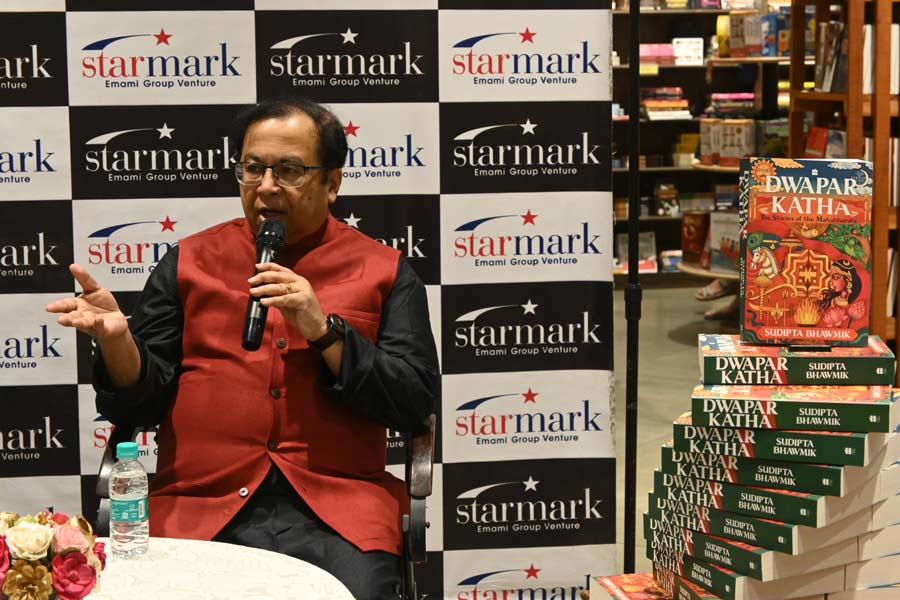
Starmark, South City Mall, became a hub for fans and nerds of the Mahabharata, as author Sudipta Bhawmik spoke about his newest book, ‘Dwapar Katha: Stories of the Mahabharata’ (published by HarperCollins India), on March 5. ‘Dwapar Katha’ is based on Bhawmik’s superhit podcast, “The Stories of Mahabharata”, which has been streaming since 2014 and has millions of downloads across the world
Photos: Amit Pramanik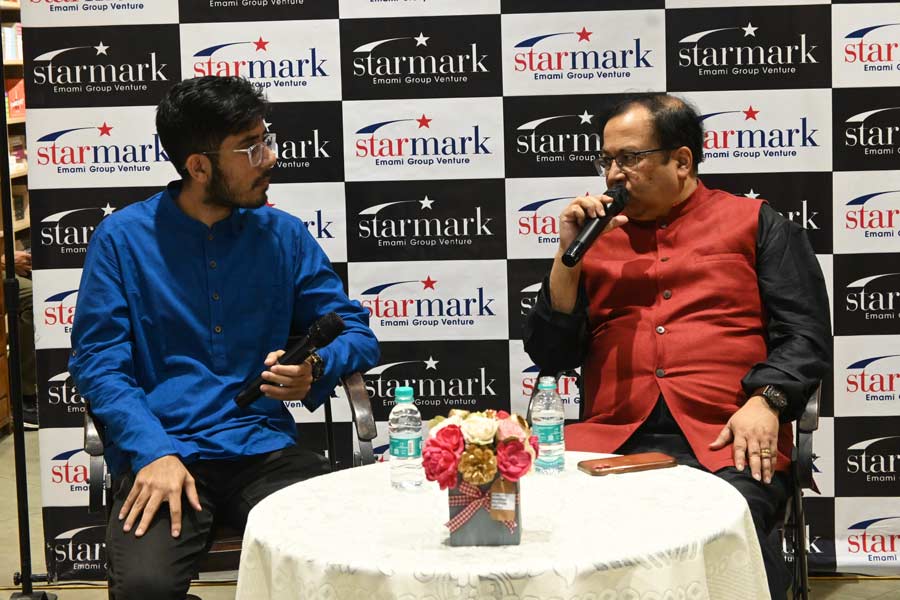
“For me, a simple illustrated version of the Mahabharata was enough to get hooked to the epic as a child,” said Bhawmik to My Kolkata’s Priyam Marik (left), who was the moderator for the evening. “Then, I found Rajsekhar’s Basu’s translation and carried it with me to the US,” continued Bhawmik, who is an Artificial Intelligence (AI) and Machine Learning (ML) expert based out of New Jersey. It was the success of Bhawmik’s podcast that led HarperCollins India to approach him for a book, which was published in December last year
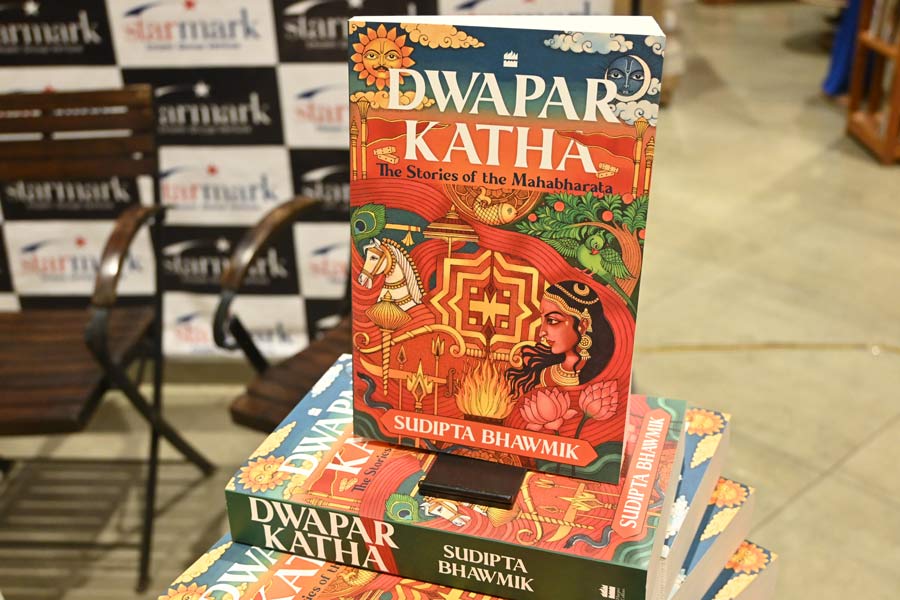
“The Mahabharata is hardly a religious text. It is a secular epic that can be read by people of any religion. The Bhagavad Gita, as well as the whole epic, can be interpreted in multiple ways. It is, after all, the story of all humanity, whose parallels can be found in domestic life as well as in the larger context of society,” explained Bhawmik, who has also written several plays based on the Mahabharata, where his style has been far more subjective than the non-judgemental narration provided in ‘Dwapar Katha’
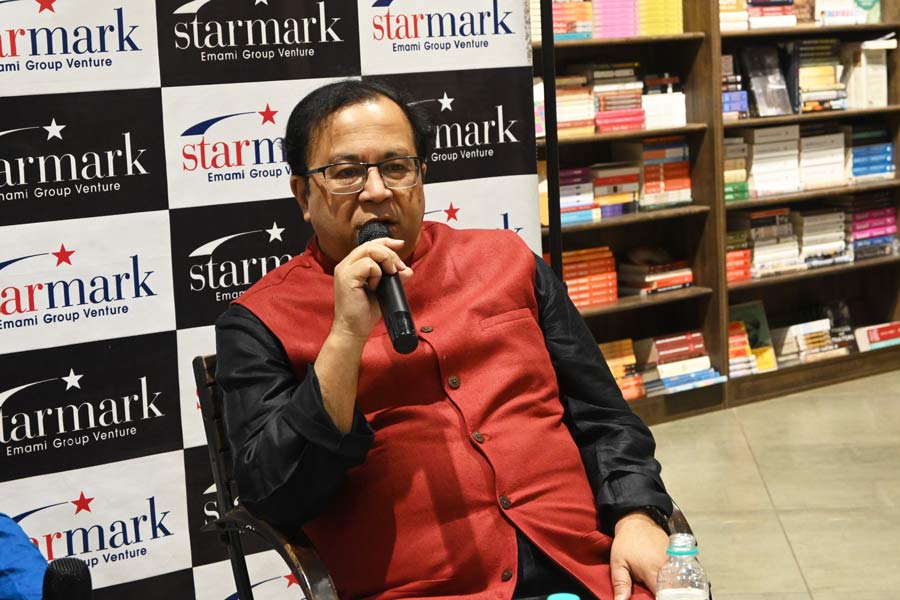
Bhawmik, who discussed Draupadi as the central character of the story of the Mahabharata, also ventured into how AI can alter the possibilities of narrating the epic in the future: “With the help of AI, you can have several alternative endings to the Mahabharata. You can also have counterfactuals playing out such as Karna fighting for the Pandavas and Krishna siding with the Kauravas.”
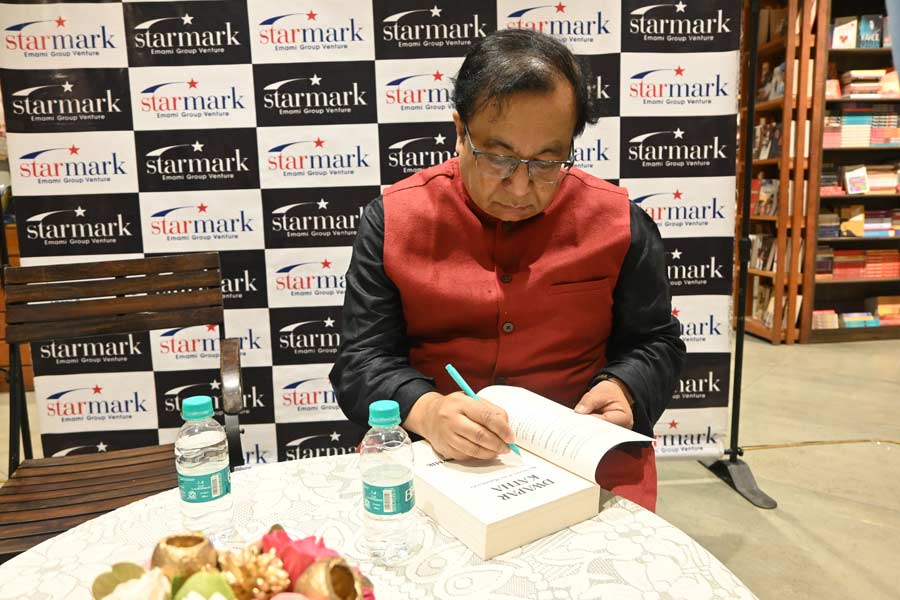
“Despite their greatness, every character in the Mahabharata is filled with flaws. What intrigues me is how these flawed characters come to form enduring relationships, be it the somewhat platonic friendship between Draupadi and Krishna or the overlooked equation between Dhritarashtra and Vidur,” observed Bhawmik before posing a question that left the audience stumped: “Some versions of the Mahabharata show that Sahadev could see the future but would have died the moment he revealed it to others. Should he, then, have sacrificed his life for the well-being of the rest of his family?”

Bhawmik faced a volley of questions in the final segment of the event, which included queries about Yudhishthir’s dharma and the extent to which Arjun was convinced by Krishna’s sermons on the battlefield. To conclude the session and single out the most essential takeaway from the Mahabharata, Bhawmik said: “Attaching a genre to the Mahabharata does it a disservice. For it’s not merely a comedy or a tragedy. It’s a timeless story that conveys the message that wars never do any good.”




